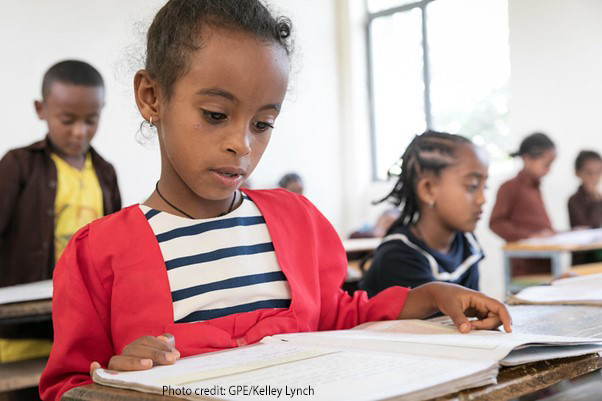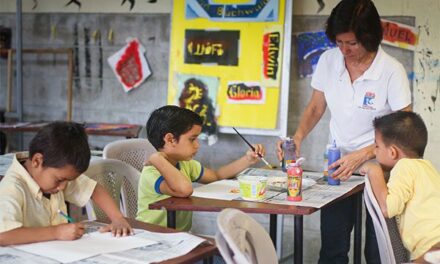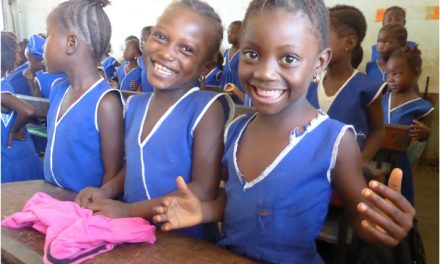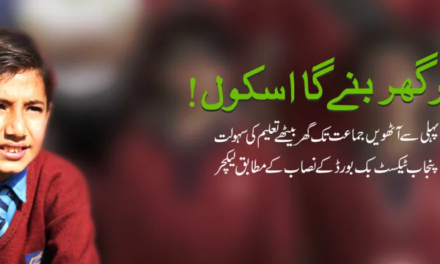This blog was written by Professors Pauline Rose and Ricardo Sabates, the Research for Equitable Access and Learning (REAL Centre) at the University of Cambridge, and Professor Tassew Woldehanna, President of Addis Ababa University.
In recent years, primary school enrolment has expanded rapidly in Ethiopia. However, even before the effects of the COVID-19 pandemic, some of the most disadvantaged still face challenges in completing primary school and learning levels have remained low and even appear to have stalled. The Research for Improving Systems of Education (RISE) Ethiopia programme is coming to an end after a successful six-year collaboration led by the Institute of Educational Research at Addis Ababa University and the Policy Studies Institute (PSI), Ethiopia together with the REAL Centre at the University of Cambridge. In addition to the REAL Centre, the international team included scholars from University College London, Cornell University, and Stockholm University. The comprehensive research programme has been examining whether and how an ambitious large package of national reforms (the General Education Quality Improvement Programme with a focus on equity (GEQIP-E)) has been working to improve learning equitably in one of the world’s poorest and most culturally and ethnically diverse countries.
RISE Ethiopia has been part of the wider RISE programme, which is now closing. This has been an international research programme investigating how strengthening education systems can overcome the crisis of millions of children spending years in school without gaining foundational skills. RISE Ethiopia has provided an important context for the wider RISE programme, given the country’s long-standing commitment to improving education quality over the past 15 years via a complex and evolving series of reforms intended to facilitate sustainable improvements in learning, particularly for children from disadvantaged backgrounds.
As the RISE programme comes to an end, we have been encouraged to see how our research has been influential in not only informing national policy change, but also global education policy debates. Through this blog we look back at some of the key messages from our research, and share a few examples of how our work has had an impact.
The research team have published extensively throughout the six years, and a list of all of the publications can be found on the RISE Ethiopia project page. However, we recognise that academic articles and papers do not necessarily translate into real-time policy needs and therefore, engagement and communication have been essential throughout the programme. The Government has been actively involved in the research starting from inception – as both participants as well as the key target audience. We have continued regular communication with the Ministry of Education through meetings, seminars and workshops, and shared key messages through different channels – including through the media and shorter outputs such as blogs. A final workshop was held in December 2022 with the Government and international donors to share the findings from the programme of work, and the Ethiopian News Agency confirmed that, following the workshop, the Government will use suggestions from the RISE Ethiopia research for policy inputs.
Reopening schools in Ethiopia after COVID-19 closures
As with many other research programmes, our work had to adapt rapidly and flexibly when the COVID-19 pandemic closed schools across the world. We continued conversations with the Government and discussed their immediate needs. As the Ethiopian Ministry of Education looked to reopen schools in October/November 2020, they confirmed the critical need for understanding the impact of the closures on the education system, as well as the preparations that would be needed to reopen schools safely. The research team felt the most useful recommendations would come from feedback given by teachers and principals, who could discuss on-the-ground challenges and provide vital information to feed into the Government’s plans. The team carried out phone surveys with 127 school principals and 316 teachers from both rural and urban locations, across 7 regional states and the capital city of Addis Ababa.
Details of the survey findings were shared directly with the Ministry of Education, the Ministry of Health and with donors and stakeholders in Ethiopia. The RISE team collaborated with other partners working on related issues in the country to provide coherent messages to inform donor responses to the pandemic. The team also published a blog which highlighted the findings, a Word version of which was also shared by email with key stakeholders to maximise reach. To further disseminate the survey findings directly with the Government, the team participated in an in-person workshop in mid-September 2020. This was held in Amharic to facilitate full participation.
An article in the Ethiopian Herald confirmed that the Government was pursuing the plans identified in the report. However, our research also showed that schools in Ethiopia still lacked the basic resources to contain COVID-19 once schools did reopen. The Addis Standard reported on our research showing: “A recent survey revealed that 74% of schools in urban areas and 87% in rural areas in Ethiopia do not have any hand washing facilities.” Thomson Reuters Foundation News focused on our research about the most marginalised being at higher risk of not returning to school: “Students from low-income families, girls, rural students and low-performing students were more at risk of remaining out of school.”
Learning loss during school closures
After schools reopened across the world, The Guardian reported on the ‘nearly insurmountable’ scale of lost schooling due to Covid. Up to 70% of 10-year-olds in low- and middle-income countries lack basic reading skills. The article showed how children, from the US to Ethiopia, have lost basic literacy and numeracy skills and how their mental and physical health has suffered. The Guardian article quoted RISE research which was published in a blog focusing on how learning inequalities have widened following school closures: “In Ethiopia, primary age children are estimated to have learned between 30-40% of the maths they would have in a normal school year.” The Economist quoted that: “…children in Ethiopia learned 60-70% less than usual during 2020.” And The Telegraph focused on how those already marginalised through living in rural areas, for example, were worse affected. This research was also referenced in an international publication by UNESCO, UNICEF and the World Bank on the state of the global education crisis post-COVID.
Alongside in-school catch-up programmes, action may be required to support those who are out of school. Linked with this, our blog on learning inequalities widening was also referenced in a media article by Thomson Reuters Foundation News focusing on speed schools in Ethiopia. The article argued that accelerated schooling was helping children to resume their studies cut short by conflict, child labour and poverty. In particular, the article picked up our findings about dropout rates being lower than initially feared, once schools reopened. This article was also referenced in a publication by the World Bank, UNICEF and the UK Foreign, Commonwealth & Development Office (FCDO) on the most effective ways of keeping children learning after the COVID-19 pandemic.
Beyond academic learning loss: the effect of school closures on social skills
We recently reported how school closures during the pandemic ‘severely ruptured’ the social and emotional development in Ethiopia, showing that this is associated with their academic progress. These findings were reported in the Independent newspaper.
Our findings highlight that government and donor funding needs to support the development of socio-emotional skills in ways that will also have positive effects on children’s academic learning, particularly for the most disadvantaged – girls, the very poorest, and those from rural areas – who have been especially badly affected. In particular, we highlight that social and emotional skills should be an explicit goal of the curriculum.
Adopting a systems approach to education reform
Our research shows that educational reform is determined both by political and technical factors, and this needs greater attention in reform design and implementation – it is not possible to address the current learning crisis using technical and technocratic solutions alone. For example, our recent research raised concerns that a payment-on-results approach to delivering education aid, championed by international institutions including the World Bank, is in danger of backfiring in some of the countries it aims to help. Our findings urge donors not to treat payment-on-results approach as a “magic bullet” for poorer countries, echoing other studies which have flagged similar doubts. Our analysis, presented in a Third World Quarterly journal article, was summarised through a news article, ‘Poorly conceived payment-on-results funding threatens to undermine education aid’, by the Faculty of Education News and University of Cambridge Latest Research, and shared more widely through media outlets.
Lessons from Ethiopian education reform
Ethiopia provides a positive example of a national reform programme designed to address both quality and equity. The design process of the reforms lacked regional and grassroots-level consultation. So while there is still more to be done in terms of engaging local government for successful implementation, accountability and coherence, lessons can be learned from the way in which donors and government have worked together to identify priorities with a focus on improving learning outcomes with equity. Recognising that education reform takes time, sustaining this commitment will be vital, even more so in the aftermath of COVID-19. Continued and reinforced attention is needed to include support for children particularly from more disadvantaged backgrounds, notably for the poorest children, particularly girls, children with disabilities, and those living in rural areas and in regions that are furthest behind.





